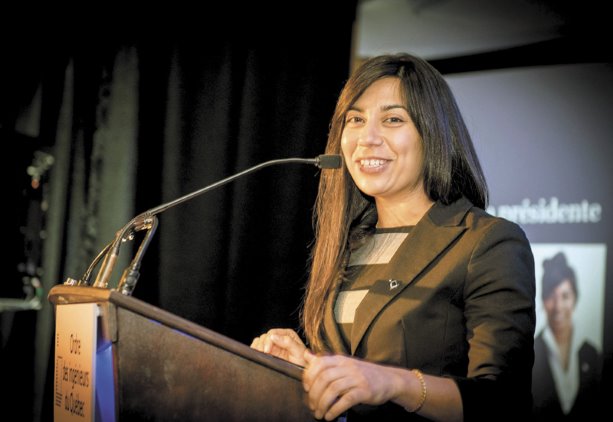Quebec’s beleaguered engineers association, the Ordre des ingenieurs du Quebec (OIQ), has created a 10-point “public protection plan” that its leadership hopes will boost public perception of the profession and have the side benefit of reviving morale among its members.
OIQ president Kathy Baig decided to get involved in board issues in 2013 while watching the televised proceedings of the Charbonneau Commission investigating corruption in the awarding of public construction contracts. In three years she rose to OIQ president and this spring she is touring the province speaking to groups of engineers to sell the three-year strategic protection plan, billed as ENG2020.
"The response that we have from our members is very positive," said Baig in a recent interview. "They believe it’s the right plan to increase perception in a good way."
Last July the OIQ was placed under the trusteeship of the provincial government to help it solve governance issues. The Office des professions, the body that oversees the province’s professions, had appointed two advisors in 2014 to assist the OIQ in achieving reforms.
The OIQ submitted a report in June of 2016 outlining reform plans but Quebec Justice Minister Stephanie Vallee announced the government found the plan "insufficient."
At the time the trusteeship was implemented, the Office des professions issued a statement that indicated, in part, "The Office determines that the effective execution of its activities of control of the profession and the financial stability of the OIQ are seriously affected, to the point of putting in doubt the capacity of the OIQ of carrying out its primary mission of protecting the public."
Kathy Baig
Ordre des ingenieurs du Quebec
The government appointed three administrators to oversee OIQ governance.
Baig was newly into her term as president when the trusteeship was announced.
"Both the Quebec government and the Office des professions du Québec have acknowledged the work that the OIQ has accomplished to date," she said. "The OIQ is already on the right path. By continuing to work closely with the Office des professions du Quebec, we will be able to speed up the transformation and restore the bond of trust with our stakeholders.
"It will be the decision of the Quebec government to end the trusteeship process."
Baig recalled watching the Charbonneau inquiry in 2013 and feeling she needed to get involved in advocating for her profession. Justice France Charbonneau issued her 1,741-page report with its 60 recommendations following four years of inquiry in November 2015.
"It was really sad what I was seeing. It was only a small amount of our members, but it was broadcast on television for so many days and so many months," Baig said.
In 2015, a survey of Quebec engineers found they believed only 59 per cent of the general public trusted the profession, but in reality 78 per cent of respondents in the general public had a very or fairly positive view of engineers — up six per cent from the previous year.
Baig said she brings up the survey on her tour to rally members.
"I am saying, we are the first ambassadors of our profession, so if we keep talking this way, how do you expect the public to talk another way?" she said.
Immediately after the Charbonneau report landed, the OIQ announced it had already implemented such steps as the 1-877-ETHIQUE hotline, an improved professional practice guide, a mandatory professionalism course prescribing ethics and mandatory training for OIQ board members.
ENG2020 goes further, with the 10 points calling for more resources to step up public protection, improved professional practices and upgrades to the OIQ’s service to its members.
Baig said the two most important points are pledges to reduce the turnaround time for investigations of member misconduct by the OIQ disciplinary bureau, called the Syndic, and to strengthen the association’s Illegal Practice Prevention Plan. The hope is to reduce the duration of Syndic investigations from 30 to 12 months through the addition of five new staff members and to almost double the number of practice inspections per year to 3,000, assisted by two new staffers.
"We wanted to change the approach of our inspection program and act more on the prevention side and helping the members improve their practices," said Baig.
Other ENG2020 measures include aiming to modernize the Engineers Act; increasing public awareness of the profession through, for example, participating in more working and focus groups; setting up a new professional inspection program; acquiring new tools to assist engineers in the academic world; and working to better integrate junior engineers into the profession.
Another topic Baig is addressing on her speaking tour is why OIQ membership fees have gone up $50 — to pay for greater staffing, more committees and other reforms.
She expected pushback but so far has received little, she said.
"The main reaction will be at our annual meeting in June. That is going to be an important meeting to know the reaction of members, but to be honest, they understand why we are doing it," said Baig.











Recent Comments
comments for this post are closed